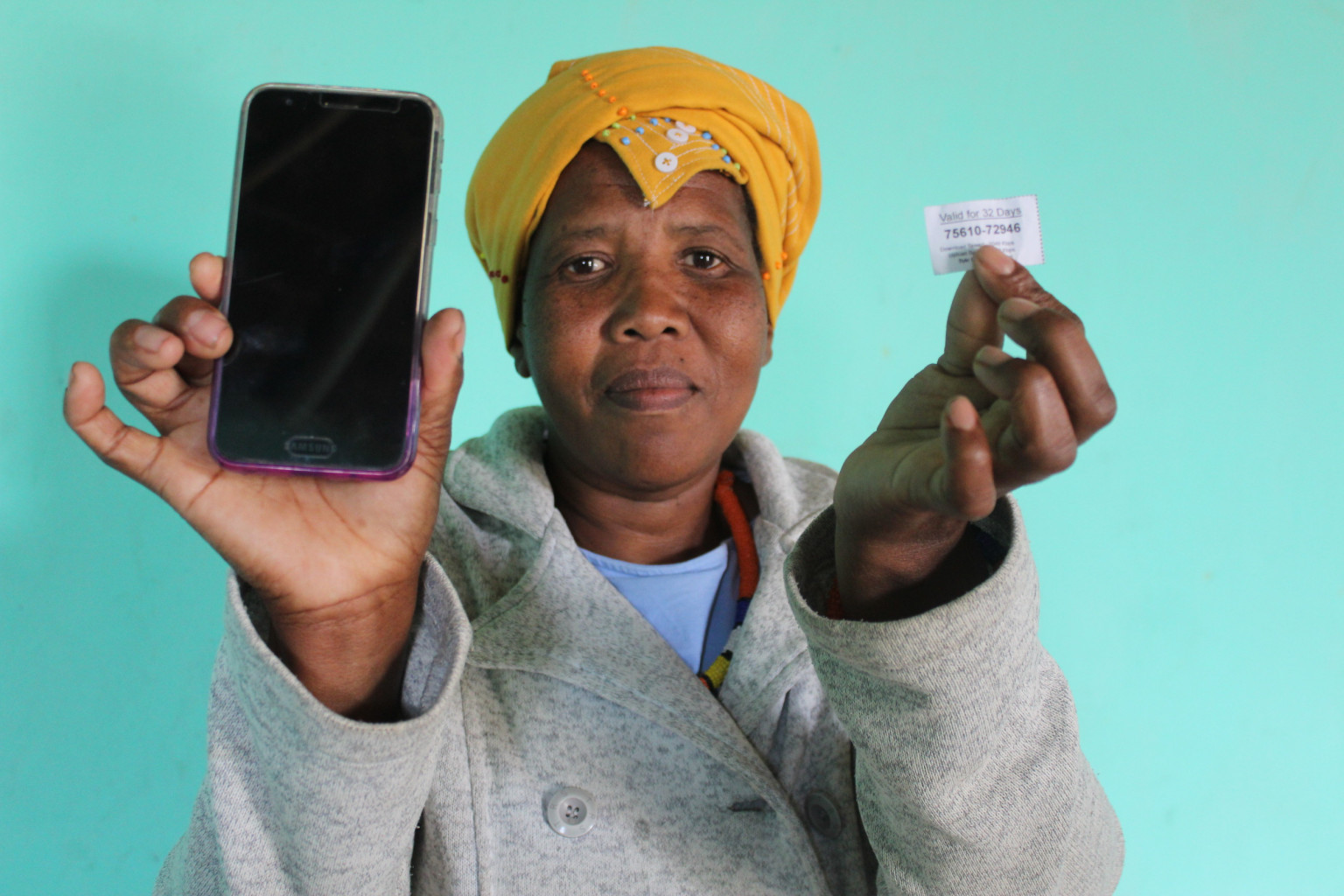
As part of the “Connecting the Unconnected: Supporting community networks and other community-based connectivity initiatives” project, 12 community network organisations (four in Africa, four in Asia and four in Latin America) were selected and granted funding towards activities that create and foster a peer learning community. Over the recent weeks we have been sharing stories from the members of this peer community about local impacts of the work they carried out with the help of this funding. Today's story is the last in this series, and and was shared with us by Zenzeleni in South Africa.
One of the representatives of Zenzeleni for the community networks learning grant initiative was Nontsokolo Sigcau, better known by those around her as Mama Sigcau. She is one of the pillars in the community of Mankosi as well as one of the original Zenzeleni Mankosi Cooperative directors, and has been involved in the network through its multiple phases over the last seven years. In order to honour Mama Sigcau’s perspective, and her learning around using technology and the internet, this story is a transcript of messages from her, sent by WhatsApp, slightly edited for the sake of clarity.
Hi, let me start my story.
I can make this world to be a better place by going to share the vision of the internet with those who are not connected to be open minded, then connect them to improve their lives.
My community know nothing about the network so I go to them sharing the vision and importance of the network, which is to improve and strengthen their lives, and also to spend less for communications. Because Wi-Fi is there (through the Zenzeleni community network) they can buy smartphones and buy vouchers to use voice notes (a short oral recording sent through a messaging app), WhatsApp calls and also video calls. For those who make handiwork I use my phone to advertise their work, like the mama who makes our traditional grass mats (amakhuko, ingobozi, izithebe). By now she has many customers coming to buy (her products), then she can afford to support her family, not only depending on the child grant. I'm also continuing with other mamas who are sewing clothes and those who do hair to start their small businesses by using the network to advertise and strengthen them. The community is busy standing up to improve themselves. Others grow vegetables and fruit like bananas because the internet is there to help them to grow, so that they can afford to be farmers.
The youth are able to load (data) vouchers because I showed them how it works. They apply online (for jobs, schools, universities, etc.) and don’t have to spend money for transport. Those who have computers work at their homes, not only in town.

Among my benefits from the learning grant initiative is that I gained knowledge by attending the African Community Networks Summit and going to share with others there.* Then I pass all the knowledge to my community, showing them videos and photos. I also get knowledge to my church-mates on how to communicate with people, you must have love, peace and behaviour. I'm also the leader because my husband is the traditional leader of the community, so the community respects me. Sometimes the youth had an attitude behaviour but I just become calm and be nice to them.
I'm proud of the community network. It helps us to know and respect each other. Besides that it gives us knowledge by sharing and learning how other people outside the country make things to improve and strengthen their lives. Really to God we are one, that’s why we must love and respect each other.
*According to Sol Luca de Tena, the other Zenzeleni representative for the Connecting the Unconnected learning grant: “The Summit was Mama Sigcau’s first journey outside South Africa. She was one of the first people in the community to get a passport. I’ve heard this experience was very celebrated among her peers and neighbours. Mama Sigcau also participated in the Summit, presenting Zenzeleni, and in addition, Zenzeleni was also used as a reference in the Summit. I think it meant a lot to her to see that the greater African and international community really recognised work that has been done in her home.”
You can read (and listen to) a previous interview with Mama Sigcau here.
Don't miss the rest of the Community Networks Stories!